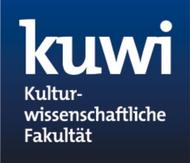Digital voting aid for the 2024 local elections in Frankfurt (Oder)
Information on the digital voting aid
For the 2024 local elections in Frankfurt (Oder), a team from the Junior Chair of Comparative Politics is working with students from the seminar‚ Wahlforschung im Superwahljahr 2024‘ to create a digital voting aid for Frankfurt (Oder).
Digital voting aids - such as the Wahl-O-Mat for the Bundestag election - help users to compare their own opinions with the positions of the parties and associations standing for election. To do this, we select politically balanced election-relevant theses in advance and contact all the parties and lists running to obtain their positions.
The digital election aid for the local elections on 09.06.2024 is available for you here: VOTO - Kommunalwahl Frankfurt (Oder) 2024
The use is free of charge and anonymous.
If you have any questions about the digital voting aid, please contact kommunalwahl2024@europa-uni.de.
Frequently asked questions about the voting aid
We cannot answer which party or association you should choose. Many aspects are relevant when deciding in favour of or against candidates and our election guide can only present selected positions. It is best to use the election guide as a starting point to inform yourself about the parties and candidates standing for election: With your result, you can also look at the answers of the individual parties and compare yourself. The groupings themselves, which we also link to, provide you with information on further positions.
The election guide aims to provide simplified information on the positions of the most important political players. These are mostly parties and list associations, which are usually organised into parliamentary groups in urban politics. The collection and presentation of positions of individual candidates would be impractical and overly complex.
The theses question political positions, but are neutral in terms of party politics, as no specific answer is suggested. Each thesis must, of course, point in a certain political direction, which can be agreed with, neutral or rejected. It can give the impression that the majority of theses point in a certain direction. We make sure that the polarity (i.e. the direction of the theses towards „left“, „right“ or „conservative“) is balanced.
There may be various reasons for this. The theses themselves do not ask for extremist positions (e.g. „Democracy should be abolished“). In addition, there are many topics in which even possibly extreme parties do not take extreme positions. Finally, it is conceivable that parties may present their positions as more moderate than they actually are.
Prof Dr Theresa Gessler
- Room: LH 104
- Logenstraße 11 | 15230 Frankfurt (Oder)
- +49 (0)335 5534 2474
- gessler@europa-uni.de
Office hours
You can register online for consultation hours:
https://calendly.com/theresagessler/officehours
Administration: Jacqueline Haake-Schulz
